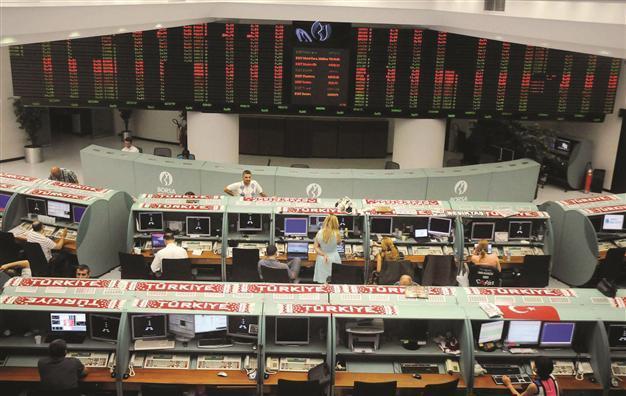Turkish Lira continues to fall despite intervention
ISTANBUL / LONDON - Reuters

The main Istanbul index fell 0.33 percent down to 71.904,63 points yesterday, underperforming the broader emerging markets index, which fell 0.07 percent.
A tightening of Turkey’s monetary policy aided the Turkish Lira yesterday, but could not fend offmore net losses for local markets worried that the U.S. Federal Reserve (Fed) is again close to turning off the taps on its flood of cheap dollars.
The Turkish Central Bank responded to strong job numbers in the United States on Nov. 8 by selling $160 million at a currency auction at the beginning of the week. It plans to sell at least a further $520 million this week in total and will not supply markets with cheaper one-week funds at an operation that had been due.
It also announced two more days of tightening its flexible policy of managing the day to day cost of money in the banking sector next week.
But the lira fell to below down to 2.0569 to the dollar yesterday, from 2.0460 late Monday. Turkey’s
10-year benchmark bond yield rose to up to 9.35 percent from 9.23 percent on Nov. 10, and then fell to 8.46 percent yesterday afternoon.
Fed fears abound
As it imports almost all of its energy, Turkey is particularly susceptible to a withdrawal of the U.S. stimulus that has driven demand for assets in emerging markets over the past year.
“We will test if the ... tightening will have an impact on the currency today,” said Fatih Keresteci, a strategist at HSBC, noting Turkey was underperforming in other emerging markets.
“Turkey is negatively decoupling (from other emerging economies) because of its huge current account deficit and high external financing need.”
The market was also eyeing the results of a tap expected later by the Treasury of its zero-coupon bond maturing on Nov. 19, 2014. Local stocks eased. he main Istanbul index fell 0.33 percent down to 71.904,63 points yesterday, underperforming the broader emerging markets index, which fell 0.07 percent.
Speculation that the Fed might soon taper its $85 billion-a-month bond-buying program sooner rather than later rose after U.S. employers added more than 200,000 new jobs last month. A Reuters poll of U.S. primary dealers - the large financial institutions that do business directly with the Fed - showed more of them see the central bank rolling back some of its asset purchases before March. The dollar held near a two-week high after a surprisingly strong U.S. jobs data by Nov. 8.
“I think tapering could well come earlier than March now, but I think people believe there is a little more upside as there were plus points in the (jobs) data,” Alastair Winter, chief economist at brokerage Daniel Stewart, said.
With the Fed poised to taper its stimulus and the ECB committed to easy policy for now, analysts expect diverging monetary outlooks in the U.S. and Europe to keep pressuring the euro against the dollar.
















